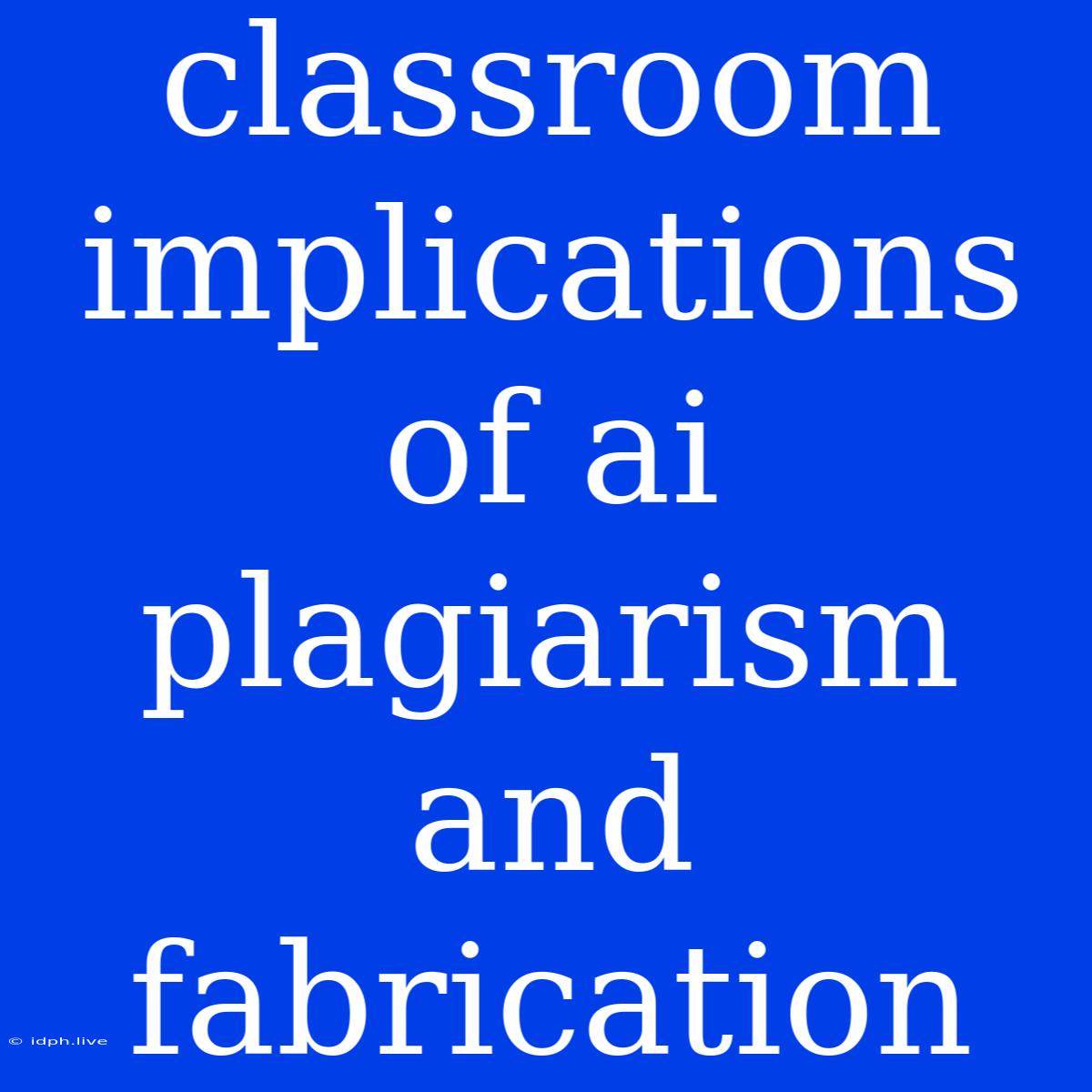Classroom Implications of AI Plagiarism and Fabrication: A Growing Concern
The rapid advancements in Artificial Intelligence (AI) have brought about a plethora of benefits, but also introduced a new set of challenges, especially in the realm of education. One of the most pressing concerns is the emergence of AI tools capable of generating human-quality text, posing a significant risk to academic integrity.
What is AI Plagiarism and Fabrication?
AI plagiarism refers to the act of submitting work generated by AI systems, such as ChatGPT, as one's own. This includes essays, research papers, and even creative writing pieces. Fabrication, on the other hand, involves using AI to create fabricated data or evidence to support a claim or argument.
Impact on the Classroom
The implications of AI plagiarism and fabrication on the classroom environment are multifaceted and significant:
1. Erosion of Academic Integrity:
- Undermining Learning: AI tools bypass the crucial learning process of research, critical thinking, and writing, hindering students' development of essential skills.
- Unfair Advantage: Students using AI tools gain an unfair advantage over those who choose to engage with the material authentically.
- Trust Issues: AI plagiarism erodes trust between students and educators, making it difficult to assess students' genuine abilities and progress.
2. Challenges for Educators:
- Detection and Prevention: Identifying AI-generated content can be challenging, requiring sophisticated detection tools and increased vigilance.
- Redefining Assessment: Educators must adapt their assessment strategies to ensure authenticity and encourage genuine student work.
- Ethical Dilemmas: AI plagiarism raises ethical concerns regarding the role of technology in education and the importance of fostering a culture of academic honesty.
3. Long-Term Consequences:
- Impact on Future Careers: Students who rely on AI tools may struggle in future academic pursuits and professional settings, where originality and independent thinking are highly valued.
- Compromised Research and Innovation: Fabricated data can skew research findings and impede scientific progress, leading to flawed conclusions and compromised integrity.
- Ethical Erosion: A culture of AI plagiarism can foster a general disregard for ethical standards and compromise the overall academic landscape.
Mitigating the Risks: A Collaborative Approach
Addressing the challenges posed by AI plagiarism and fabrication requires a collaborative approach involving students, educators, and institutions:
1. Education and Awareness:
- Open and honest discussions about the ethical implications of AI and academic integrity.
- Providing students with clear guidelines and consequences regarding AI plagiarism and fabrication.
- Encouraging critical thinking and media literacy skills to identify AI-generated content.
2. Adapting Assessment Strategies:
- Incorporating authentic assessments that prioritize critical thinking, problem-solving, and creative expression.
- Utilizing innovative assessment tools and technologies to detect AI plagiarism.
- Encouraging peer review and collaborative learning to promote academic integrity.
3. Institutional Support:
- Investing in robust AI plagiarism detection tools.
- Establishing clear policies and procedures for handling AI-related academic misconduct.
- Providing support and resources for educators to navigate the evolving landscape of AI in education.
Conclusion
The rise of AI plagiarism and fabrication presents a significant challenge for the academic world. However, by fostering open dialogue, promoting critical thinking, and adapting teaching and assessment practices, we can ensure that technology serves as a tool for learning rather than a means for cheating. The future of education lies in finding a balance between embracing technological advancements and safeguarding the principles of academic integrity.

